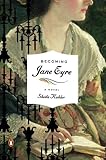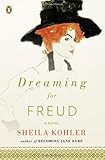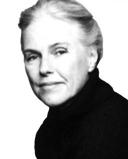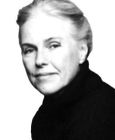Cognition
How To Write A Great Beginning?
Seven suggestions with examples for the start of a novel, story or essay.
Posted September 8, 2014
1) THE ESTABLISHMENT OF AUTHORITY
One of the essential elements is simply that the reader believes what you have to say or believes that the character on the page believes what is said, perhaps knows even the whole story, often starting at the end: “This is the saddest story I have ever heard, ” writes Ford Maddox Ford at the start of “The Good Soldier.”
With Kafka’s “Metamorphosis” we have: “As Gregor Samsa awoke one morning from uneasy dreams he found himself transformed in his bed into a gigantic insect.” We are immediately plunged into this albeit fantastic world with such a matter of fact and down to earth voice, a cool statement that expresses no emotion, that we believe or are anyway willing to suspend disbelief—all is in the assurance of the voice.
In other words a credible voice, a credible narrator, or a recognizably unreliable narrator is created from the first line, a voice that we trust, a voice that we allow to take us in hand as it were and lead us, our Virgil into the underworld.
2)ESTABLISHING THE RIGHT DISTANCE
It is necessary to find the voice that will establish sufficient confidence and intimacy between you and the reader, so that the reader believes that he is being taken, perhaps, into a private, even secret world, a world only he or she knows: “Lolita , light of my life, fire of my loins. My sin. My soul.” So starts Nabokov’s Lolita. Who could not read on? Or Nick Caraway in “The Great Gatsby” telling us in the first person about his father’s advice. “In my younger and more vulnerable years, my father gave me some advice.”
At the same time the voice must give us sufficient information ( but not too much—pacing if you will,) a few exact, precise details: where we are for example in beautiful and desolate country at the start of “Wuthering Heights” , far from the stir of the crowd; or the exact sum of money, perhaps, that Fyodor owned or the exact number of years since his death: a hundred thousand roubles and thirteen years since his death at the start of Dostoevsky’s “Brothers Karamazov” just as Kafka gives us Gregor Samsa’s stiff arched segments and his covering quilt which is slipping to the floor.
3)GREAT BEGINNINGS OPEN UP POSSIBILITIES
A moment of change sets off a chain of events. What will happen to Gregor Samsa now he is a bug?
4)In other words MYSTERY is created. Why is Heathcliff so taciturn and suspicious, from the start? What has happened to him?
5) Mystery comes from CONFLICT.
A series of conflictual desires, opposing forces are set in motion. In “Anna Karenina” the conflict is set up between the husband and wife ( Dolly and Oblonsky) which will be echoed tragically with Anna and Vronsky.
6) And all of this requires the RIGHT LANGUAGE, a language specific to the writer or narrator ( Jane Austen’s ironic tone, for example) and to the theme.
7) Which brings me to my last point. THE THEME of the book, the essay or the story is announced at the start. Camus’ beginning of “The Stranger” is perhaps one of the clearest with its truncated sentences, the white spaces that sum up Mersault’s alienation for us. “Mother died today. Or, maybe, yesterday; I can't be sure.”
Sheila Kohler is the author of many books including Becoming Jane Eyre and the recent Dreaming for Freud.
She will teach a class at the Center for Fiction on The Writer in Fiction. Sign up for the first class by September 17.
Becoming Jane Eyre: A Novel (Penguin Original) by Sheila Kohler Penguin Books click here
Dreaming for Freud: A Novel by Sheila Kohler Penguin Books click here




